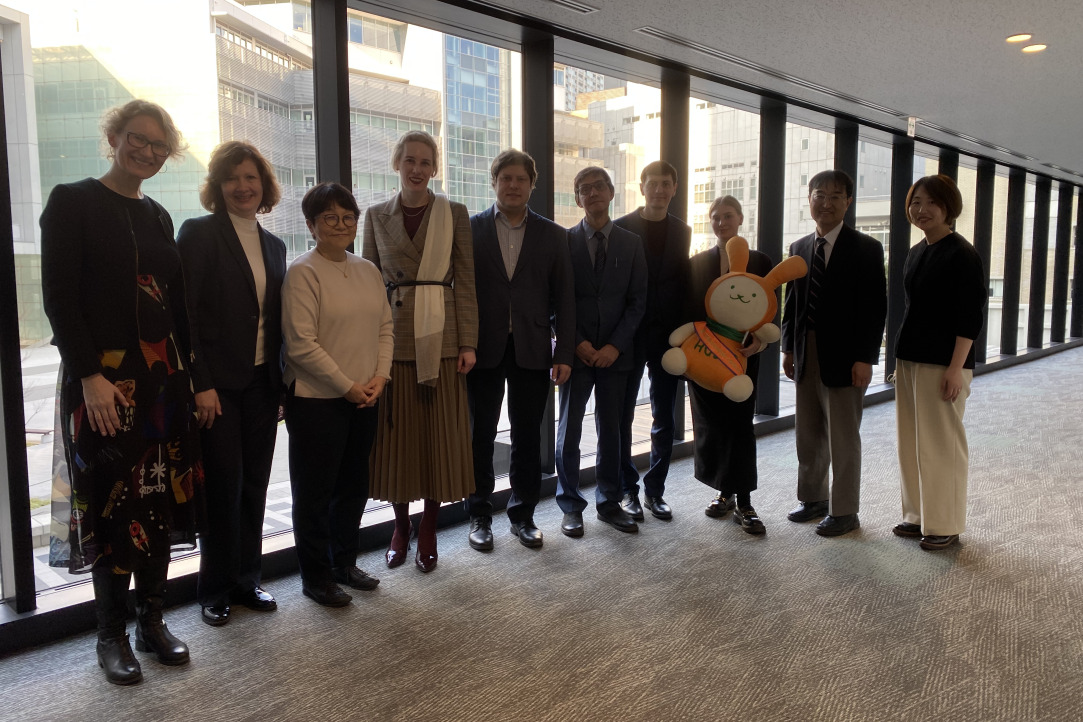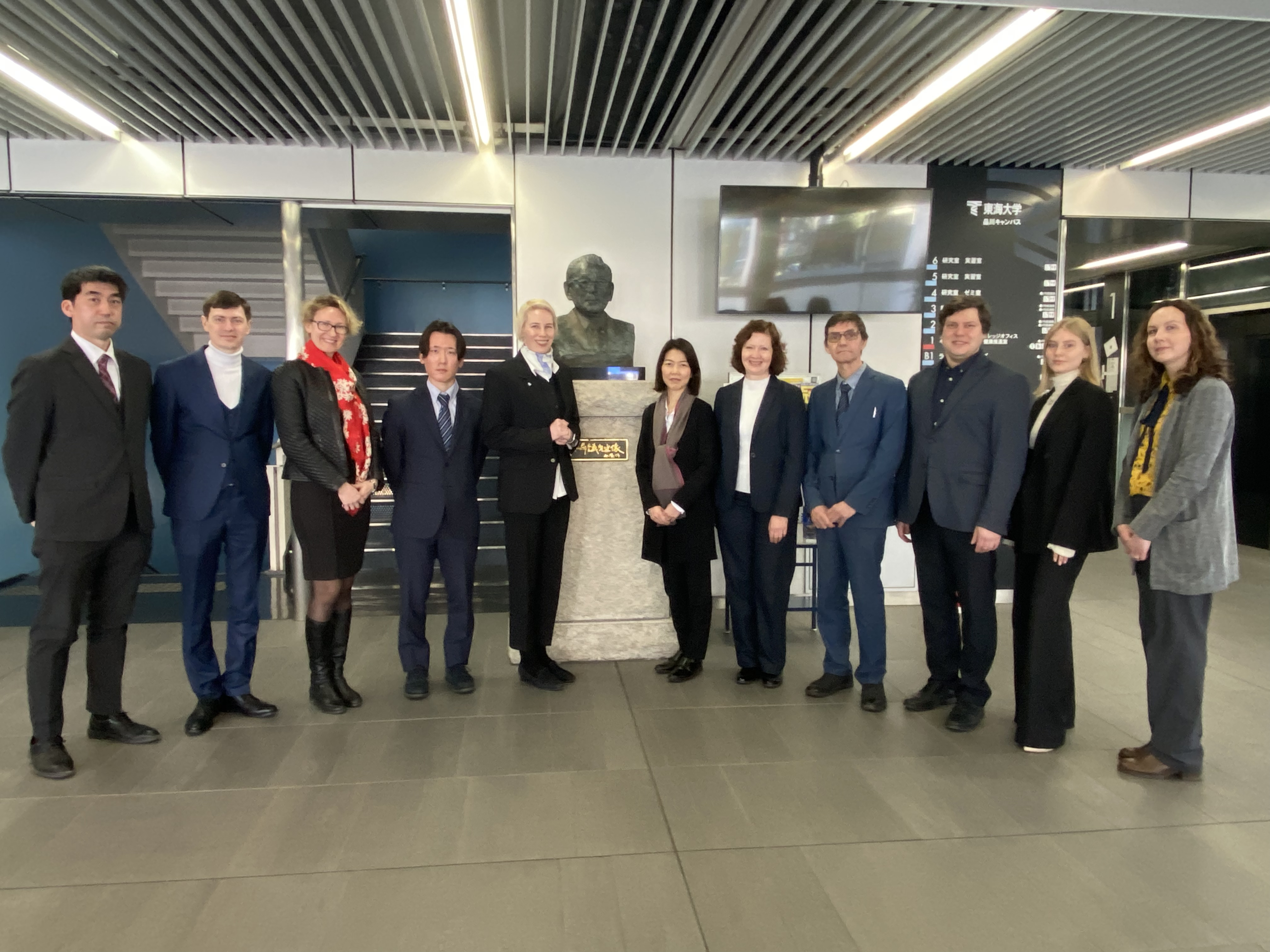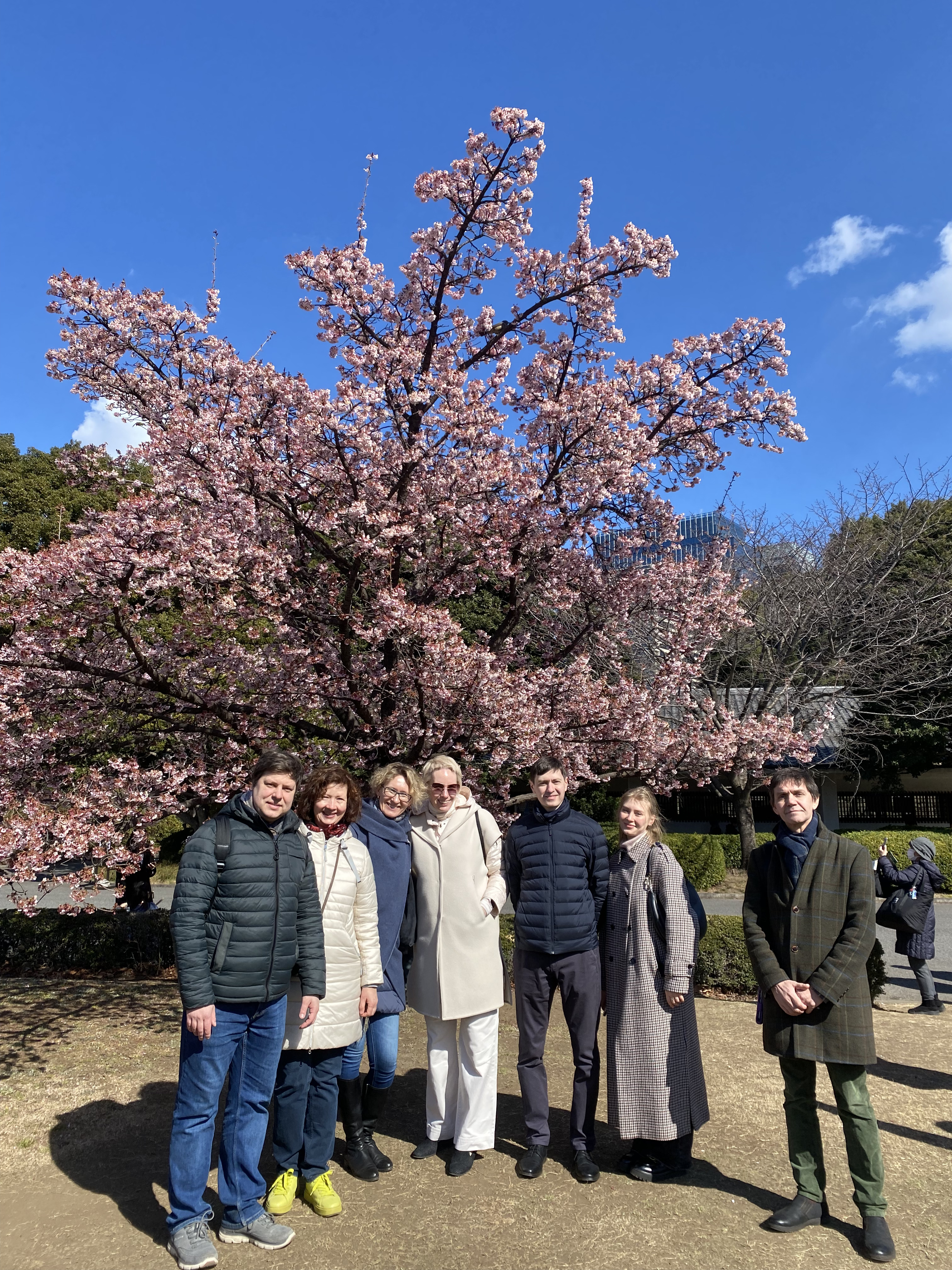- A
- A
- A
- ABC
- ABC
- ABC
- А
- А
- А
- А
- А
- HSE Campus in St. Petersburg
- Institute of Asian and African Studies
- News
- Institute of Asian and African Studies in the HSE St. Petersburg continues to develop cooperation with Japanese universities
-
Institute
- About the Institute
- Faculty and Staff
-
Departments
-
- Department of Middle Eastern and African Studies
- Department for Chinese, South and Southeast Asian Studies
- Department of Japanese Studies
- Department of Korean Studies
- Department of International Relations and Political Processes in Asia and Africa
- Department of Public and Cultural Development in Asia and Africa
-
- Degree Programmes
190121, Saint Petersburg,
Soyuza Pechatnikov str., 16
The Institute of Asian and African Studies was established in 2022 at HSE University-St Petersburg based on the Department of Asian and African Studies, the undergraduate and graduate programmes in the related field, as well as the Centre for Asian and African Studies. The Institute focuses on the development of professional education along with Asian and African studies as a field of scientific knowledge, aiming to preserve and enhance the achievements of the St Petersburg school of Oriental Studies.
Asian and African Studies
Cross-Cultural Studies of Asia and Africa in the Context of International Relations
 EU–Central Asian Interactions: Perceptions, Interests and Practices
EU–Central Asian Interactions: Perceptions, Interests and Practices
Arynov Z., Bossuyt F., Davletova N. et al.
Abingdon: Routledge, 2024.
Восток. Афро-азиатские общества: история и современность. 2025. Vol. 5. P. 191-200.
In bk.: Handbook on Migration to China. Edward Elgar Publishing, 2025. P. 294-308.
Krivokhizh S., Akopov S.
Basic research program. WP BRP. National Research University Higher School of Economics, 2019. No. 65/PS/2019 .

Institute of Asian and African Studies in the HSE St. Petersburg continues to develop cooperation with Japanese universities

During the negotiations, new agreements were reached on the creation of online programs for students of the Department of Japanese Studies of the Institute of Asian and African Studies and Japanese students; the implementation of joint scientific research, and the holding of joint scientific and expert events in Russia and Japan. It was decided to continue the development of online programs with universities in Japan; a number of them are already being implemented at the Department of Japanese Studies, for example, with Sofia University.
The Department of Japanese Studies at the National Research University Higher School of Economics in St. Petersburg, preserving rich scientific traditions, is today forming a new school of Japanese studies in Russia, which combines fidelity to traditions and modern approaches to the study of the culture, society and political processes of modern Japan. The proposed online courses, which will be taught by lecturers of the Institute of Asian and African Studies at Japanese universities, will be devoted to a wide range of educational areas, such as the methodology of translation from Japanese into Russian and from Russian into Japanese, the mutual influence of Russian and Japanese literature on each other, the history of Russian-Japanese political and cultural relations, as well as various aspects of Russian history up to modern times.

One of the universities that the delegation visited was Osaka University. Head of the Department of Japanese Studies Olga Klimova completed her Master's and Doctor Course at this university, after which she worked there as a visiting professor. For her, returning to her Japanese alma mater became a very symbolic moment.

Olga Klimova
Head of the Department of Japanese Studies
“I would like to pass on to our students the incredible experience that I was lucky enough to have here not only as a student, but also as a professor. At the meeting with representatives of Osaka University, one of the most prestigious universities in Japan, we discussed possible options for cooperation. According to our Japanese colleagues, they are very interested in developing joint educational and research projects between our universities. It is human connections, mutual trust and respect, tested in this case by many years of joint work, that are the main bridge that connects human minds and hearts. Next we will work on developing new projects, developing joint courses to create opportunities for our students to study at this and other universities in Japan, so that they, like I once did, have the chance to fall in love with the culture of this incredible country”.

At the meetings, the issue of organizing exchange programs for students with Japanese universities was also raised. Currently, students of the Department of Japanese Studies at the Institute of Asian and African Studies have the opportunity to go on internships to universities in Japan such as Kwansei University, Tokai University, TUFS and KUFS. Opportunities for further expansion of exchange programs are being considered.
The agreements discussed during the meetings are the first step to restore full-fledged cooperation and scientific exchange between the Higher School of Economics and Japanese universities, as well as the development of further cooperation in the field of education and science.
